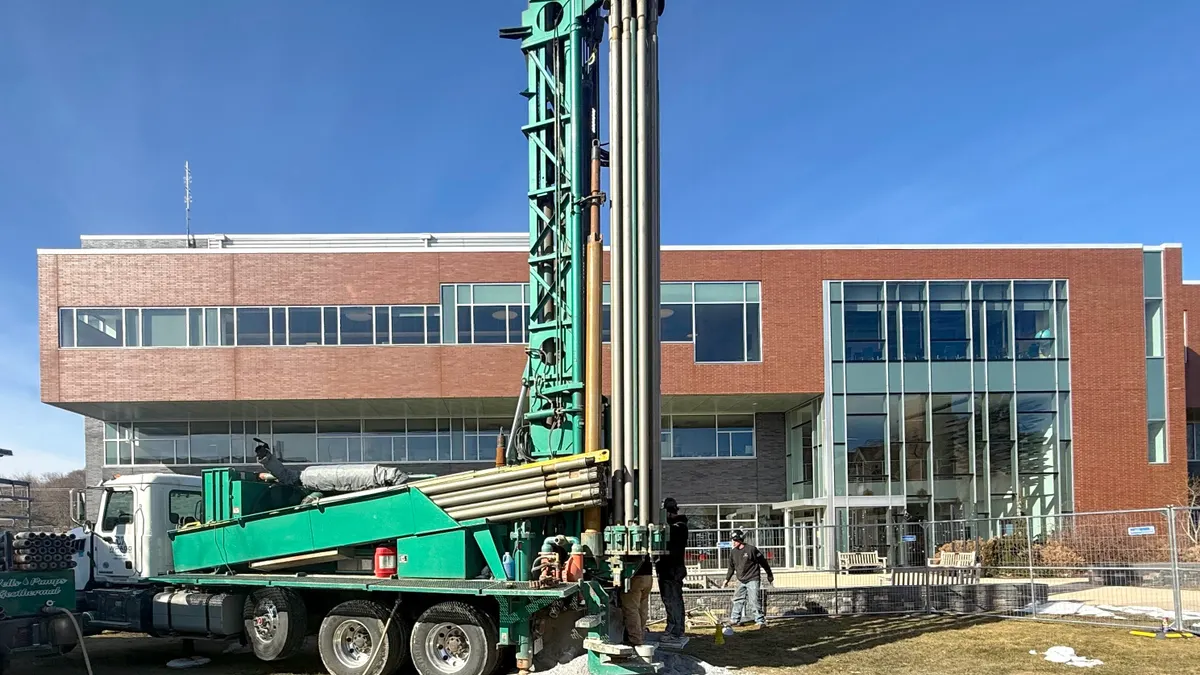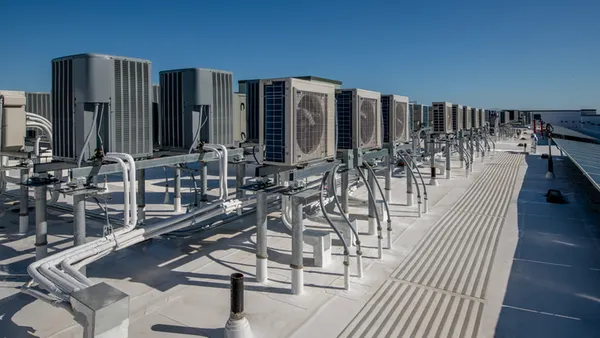Dive Brief:
- Oklahoma State University will use a Vicinity Energy district energy system at a new medical campus to reduce emissions associated with its on-site operations.
- The district energy system will provide steam and chilled water for space heating and cooling, domestic hot water and direct steam humidification, according to a news release last week.
- This process will “significantly streamline the daily operations of facilities management teams at Oklahoma State University's medical campus by reducing the need for 24/7 operations, routine inspections and ongoing maintenance of on-site heating and cooling equipment,” Vicinity Energy CEO and president Kevin Hagerty said.
Dive Insight:
District energy systems use centralized facilities to serve multiple buildings. The project at OSU will add a newly constructed 275,000-square-foot veterans’ hospital to the Tulsa, Oklahoma, district energy system, per the release.
By integrating Vicinity Energy’s district energy into its medical campus, OSU can improve HVAC and water heating reliability, redundancy and energy efficiency compared with operating on-site equipment at the hospital, per the release. That consistency and reliability is key “particularly during extreme weather events or power outages, ensuring uninterrupted care and reducing stress on the facilities team during critical situations,” Hagerty said.
Another benefit is that the university’s facilities teams can spend less time on equipment maintenance, according to Hagerty. “District energy [also] frees up valuable space that can be repurposed for medical equipment or treatment rooms, optimizing space and improving patient care,” Hagerty said.
Vicinity Energy says it operates 19 district energy systems across 12 cities that provide steam, hot water and chilled water to over 260 million square feet of building space across the U.S. The company has a goal of reaching net-zero carbon emissions by 2050.
Vicinity has been working on integrating electric boilers and heat recovery pumps into its systems. These technologies, combined with renewable energy sources like wind, solar and hydropower, enable Vicinity to offer carbon-free steam, which it calls eSteam, in some markets. The company announced in July that eSteam would meet all the heating and hot water requirements at Emerson College in Boston.
Vicinity Energy says its other healthcare clients include Jefferson Health and Boston Medical. Additional higher education institutions it serves include Northeastern University, Drexel University and Michigan State University, according to the company’s website.
Correction: A previous version of this story erred in its mention of a higher education institution Vicinity Energy serves. It is Northeastern University.











